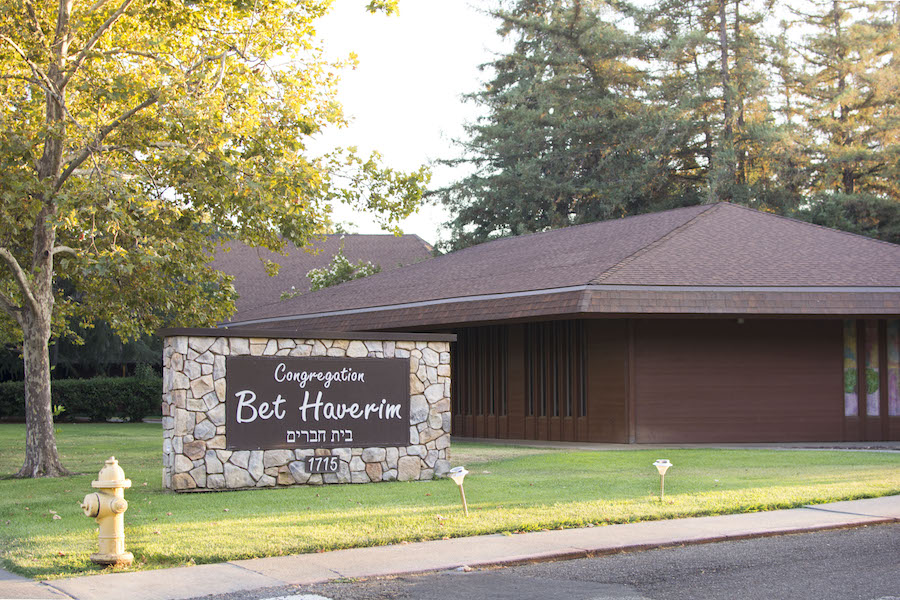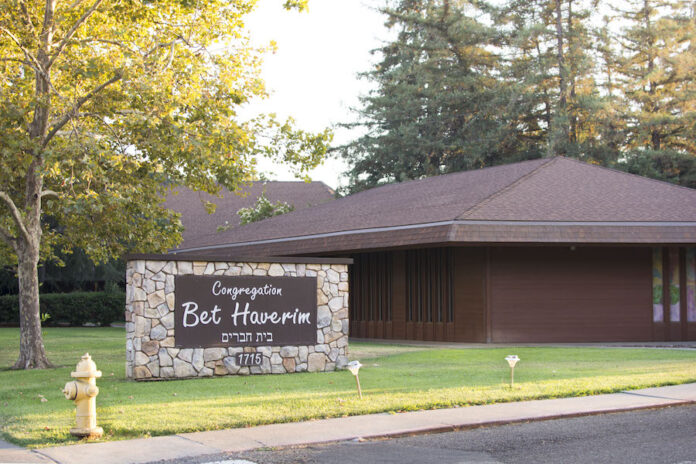
The Davis community failed to take a stand against an anti-Semitic hate crime
At 3:45 a.m. on the morning of Jan. 22, a heinous, racially-charged vandalism was committed against the Islamic Center of Davis, with bacon laid across the door handles. Several days later, tires of vehicles were slashed outside the center. The Davis community banded together to show its solidarity with the center, holding rallies and shows of support, while social media accounts of student and local leaders swiftly and righteously condemned the attacks.
The Jewish community in particular — no stranger to hate crime, with 52 percent of all religious hate crimes committed against Jews — mobilized to support the Islamic Center. The Jewish sorority Sigma Alpha Epsilon Pi, for example, delivered baked goods to Epsilon Alpha Sigma, the Arab sorority, and Hillel at Davis and Sacramento, the main Jewish cultural organization on campus, delivered letters of support.
Six months later, in July, the Islamic Center invited the inflammatory Imam Ammar Shahin to give a sermon. In English, he spoke about the end times when Muslims will kill all Jews as inanimate hiding places like trees and houses reveal the Jews’ location. Then in Arabic, among other anti-Semitic attacks, Shahin called to “annihilate [the Jews] to the very last one. Do not spare any of them.”
Unlike the response to the vandalism of the Islamic Center, the response to this vicious anti-Semitic hate crime was a muted one at best. The Chancellor’s office issued a cautious statement, as well as Congressman John Garamendi’s office — and that was largely it. Even after Shahin apologized for his statements, a group of Davis students continued to defend his words, attributing the hate to a Zionist or right-wing conspiracy intended to make the Islamic Center look anti-Semitic (forgetting that many of those same Zionist Jews across the political spectrum were at the mosque in solidarity just months earlier).
In addition, many of those same students harassed Jewish students, many of whom are still dealing with the trauma and pain that the imam’s statements caused, calling them Islamophobic and further invalidating their trauma.
Arguments began circulating that the quotes were taken out of context and that the translation was not entirely accurate. Any and every other type of theory emerged as the Davis community collectively stuck their heads in the sand. They refused to acknowledge one of the longest-running and most deadly types of racism the modern world has seen: anti-Semitism. Today, in the progressive city of Davis, this form of racism receives a pass.
It’s easy for the typical progressive to condemn a neo-Nazi when they say, “death to the Jews.” Problems arise when extremist elements on the left begin uttering dog-whistle (and, in this case, very blatant) anti-Semitic rhetoric. The problem is when one of the most marginalized groups in the world is still largely kept outside of the intersectional umbrella and held to a different standard than any other marginalized group, with our struggles inherently not as important.
It really boils down to this: When the right wants to stir up anti-Semitism, white-passing Jews stop being white, becoming our own Jewish race. But when the left wants to do the same, we become white, part of the oppressing class and therefore not subject to the sympathy and solidarity all other marginalized communities receive.
This is what we see at modern Nazi rallies, when they chant, “blood and soil” and “death to the Jews.” It’s what we see from the extreme left when symbols of Jewish pride are banned for fear that they may “offend” someone. We, the entire Davis community, must loudly and unequivocally stand up for every marginalized community. We must do so even when it’s uncomfortable, even when another historically marginalized community is the one being problematic and even when the victims are the sometimes white-passing Jews. Racism is racism and we cannot allow anti-Semitism to be driven into the blind spot of social justice with our inaction.
Written by: Michael Gofman
Disclaimer: The views and opinions expressed by individual columnists belong to the columnists alone and do not necessarily indicate the views and opinions held by The California Aggie.









